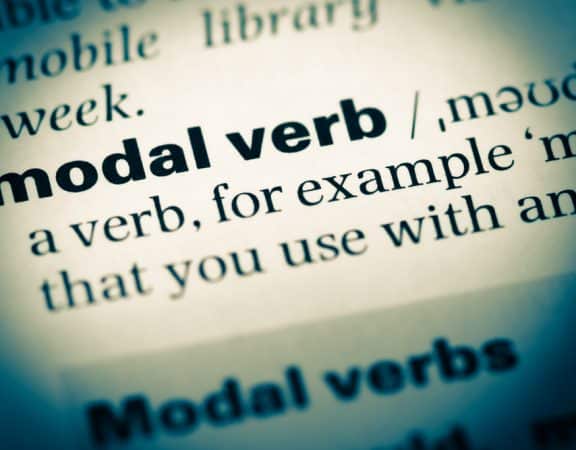
Present continuous – Prítomný čas priebehový (Stručný prehľad)
27. August 2019
Future continuous – Budúci čas priebehový v angličtine (Stručný prehľad)
27. August 2019Future tense (Future simple, Will Going to) – Budúci čas v angličtine
Future tense (Future simple) tvoríme s pomocou „will“ alebo „going to.“ Budúci čas s „will“ používame, keď hovoríme o budúcich udalostiach, pri ktorých sa domnievame, že sa určite stanú a budúci čas s „going to“ používame, keď hovoríme o plánoch do budúcnosti.
V tomto článku sa dozvieš, ako správne používať jednoduchý budúci čas v angličtine.

Budúci čas s Going to
V angličtine neexistuje budúci čas ako taký. Existujú 4 budúce formy. V hovorovej angličtine sa najčastejšie používa nie will, ale going to.
Plány do budúcnosti
Going to používame, keď hovoríme o pláne do budúcnosti.
I’m going to see him later today.
They’re going to launch it next month.
We’re going to have lunch first.
She’s going to see what she can do.
I’m not going to talk for very long.
Všimni si, že tento plán nemusí byť pre blízku budúcnosť.
When I retire I’m going to go back to Barbados to live there.
In ten years time, I’m going to be a boss of my own successful company.
Predpovede na základe súčasnosti
Pre Future tense používame going to, ak chceme urobiť predpoveď, založenú na faktoch, ktoré vidíme teraz.
Look out! That cup is going to fall off.
Look at those black clouds. It’s going to rain soon.
These figures are really bad. We’re going to make a loss.
You look very tired. You’re going to need to stop soon.
Kedy použijeme len „going“
Môžeme nahradiť going to slovom going.
I’m going out later.
She’s going to the exhibition tomorrow.
Budúci čas s Will
Niektorí ľudia sa učili, že will automaticky znamená budúcnosť v angličtine. To nie je správne. Niekedy, keď hovoríme o budúcnosti, nemôžeme použiť will. Zároveň, niekedy, keď používame will, nehovoríme o budúcnosti.
Veľmi pravdepodobná budúcnosť
Môžeme použiť will, keď hovoríme o budúcich udalostiach, pri ktorých sa domnievame, že sa určite stanú.
The sun will rise over there tomorrow morning.
Next year, I’ll be 50.
There won’t be any snow. I’m certain. It’s too warm.
That plane will be late. It always is.

Will a pomocné slovíčka
Často pridávame slová perhaps, maybe, probably, possibly, ak chceme zdôrazniť, že si nie sme úplne istí.
I’ll probably come back later.
He’ll possibly find out when he sees Jenny.
Maybe it will be OK.
Perhaps we’ll meet again some day.
Využitie „I think“ a „I hope“
Will často používame spolu s I think alebo I hope.
I think I’ll go to bed now.
I think she’ll do well in the job.
I hope you’ll enjoy your stay.
I hope you won’t make too much noise.
Will – Spontánne rozhodnutia
Používame will v okamihu, keď sme sa urobili nové rozhodnutie alebo plán. Práve nám táto myšlienka napadla a v tomto prípade potrebujeme použiť Future Simple.
Bye. I’ll phone you when I get there.
I’ll answer that.
I’ll go.
I won’t tell him. I promise.
Going to alebo Will?
Ak chceme hovoriť o budúcich skutočnostiach alebo o veciach, o ktorých sme presvedčení, že budú pravdivé v budúcnosti, používame will.
The President will serve for four years.
The boss won’t be very happy.
I’m sure you’ll like her.
I’m certain he’ll do a good job.
Ak si nie sme úplne istí budúcnosťou, používame will s výrazmi ako probably, possibly, I think, I hope.
I hope you’ll visit me in my home one day.
She’ll probably be a great success.
I’ll possibly come but I may not get back in time.
I think we’ll get on well.
Ak robíme predpoveď budúcnosti, založenú na faktoch zo súčasnej situácie, používame going to, keď potrebujeme v tejto situácii použiť budúci čas v angličtine.
Not a cloud in the sky. It’s going to be another warm day.
Look at the queue. We’re not going to get in for hours.
The traffic is terrible. We’re going to miss our flight.
Be careful! You’re going to spill your coffee.
V okamihu rozhodovania, používame will. Po tom ako sme sa už rozhodli, používame going to.
I’ll call Jenny to let her know. Sarah, I need Jenny’s number. I’m going to call her about the meeting.
I’ll come and have a drink with you but I must let Harry know. Harry, I’m going to have a drink with Simon.
Toto boli príklady na Future tense (Budúci čas) v angličtine.
Máš prejdený tento rýchly prehľad?
Pozri si ďalšie časy v angličtine:


